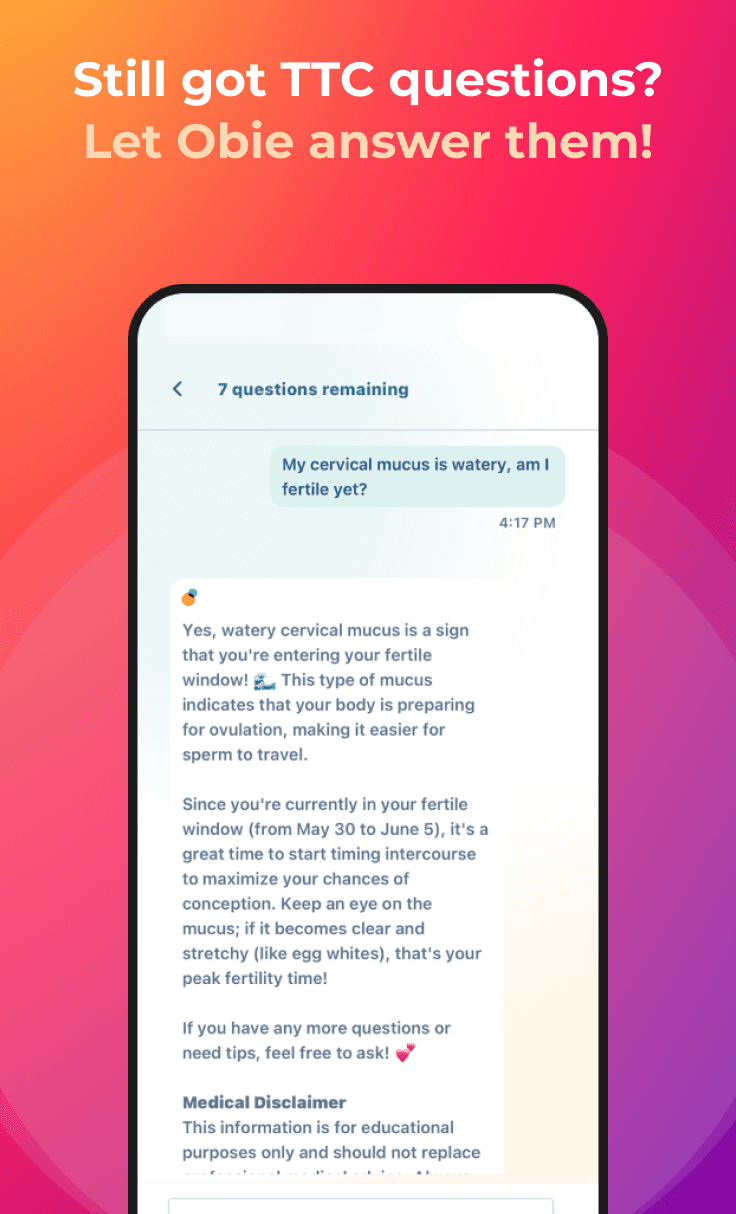You Can Get Pregnant After...
Getting Pregnant
Obie Editorial Team
Life sometimes knocks us down and we think we are out for good, but there are lights at the end of every tunnel especially for women trying to conceive. Chronic illness, cancer, injury and surgery are all reasons women give up on the dream of having a child of their own, but you can get pregnant after many of these life events – if you plan, prepare and know your medical resources.
You can get pregnant after a tubal ligation.
Women undergo a tubal ligation (having your tubes tied) because they do not want to have more children or there is a medical condition that could be worsened by a pregnancy, among other reasons.
Tubal ligation involves cutting the fallopian tubes to prevent released eggs from being fertilized. The eggs make it to the end of the fallopian tube which has been tied or burned and then stop. Eggs die within 24 hours. Despite the sterilization procedure, you can get pregnant with surgery. Surgery is available to repair a tubal ligation if a woman wants to conceive in the future.
You can get pregnant after an ectopic pregnancy, or two.
An ectopic pregnancy occurs when the egg is fertilized in the fallopian tube, but instead of moving into the uterus to implant, the egg implants in the tube. As the fetus starts to rapidly grow, pressure occurs on the inside of the fallopian tube and pain results. Some women experience a rupturing of the fallopian tube before seeking medical attention.
In some cases, ectopic pregnancy can occur in both fallopian tubes causing ruptures that prevent sperm from accessing the egg for fertilization, but you can get pregnant. Surgery can be performed in some cases to repair the fallopian tubes to restore fertility. If this is not a viable option, eggs can be harvested from the ovaries and fertilized outside the womb. Once fertilized the egg is pushed into the uterus by a fertility doctor where implantation may occur.
You can get pregnant after having cancer.
Women with cancer requiring radiation and / or chemotherapy have options for motherhood later in life. Eggs can be harvested before treatment and frozen for later use. Radiation and chemotherapy destroy many or all of the eggs. Unlike sperm, eggs do not replenish and thus need to be removed before cancer treatment. So you can get pregnant if you have your eggs preserved prior to cancer treatment.
If eggs are not preserved before treatment, donor eggs can be used for pregnancy. Donor eggs are fertilized outside the womb and injected into the uterus. In some cases, more than one viable egg will be injected to increase the chances of pregnancy. Donor eggs will not be from the mother but donor sperm can be collected from the woman’s partner.
You can get pregnant after having a hysterectomy.
Maybe not in the classic meaning of the word, but there is a possibility of having a biological child born with your egg and your partner’s sperm after a hysterectomy. If the ovaries were left in place eggs can be pulled out of the ovaries and fertilized with the sperm of your partner. The fertilized eggs can then be carried by a surrogate mother, possibly a friend or family member. When the baby is born, the biological DNA will match that of mother and father despite mom having a hysterectomy.
If a total hysterectomy with removal of the ovaries is scheduled, eggs can be harvested and frozen for future use with a surrogate. Once the ovaries are removed you can get pregnant with a donor egg and surrogate.








